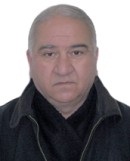
Plenary Lecture
Water Resources and Quality Study on the Territory of Georgia

Professor Teimuraz Davitashvili
I. Vekua Institute of Applied Mathematics
Tbilisi State University
Georgia
E-mail: teimuraz.davitashvili@tsu.ge
Abstract: At present environment pollution by harmful substances having anthropogenic origination several times excised pollution caused by natural phenomena such are: volcanic eruptions, fires of forests, earthquakes, tornado, cyclones etc. Generally, harmful substances are emitted from power plants and vehicle engines, however in addition to ordinary events it is possible that non-ordinary situations like oil and gas pipelines and auto traffic and railway accidents arise (also terrorist attacks become more frequent). Activity of anthropogenic factors resulted in the considerable change of the area of underlying surface and water supplies in Georgia. Namely there are observed decreasing of the mowing, arable, unused lands, water resources, shrubs and forests, owing to increasing of the production and building. Transformation of one type structural unit into another one, naturally, results in local climate change. As research studies have shown, in recent decades, climate change process directly or indirectly impacts on different components of water resources on the territory of Georgia. In this study some hydrological specifications of Georgian water resources (surface, underground, thermal, mineral and drinking) and its potential pollutants are presented. Owing to climate change process in modern glaciers of Georgia dominate the processes of the retreat and melting, sizes of large glaciers come apart into smaller ones, the volume and length of glaciers are reduced. Some results of investigation of Georgian’s glaciers pollution and its melting process are given. In the last decades, study on regularities of space-temporal distribution of anthropogenic admixtures in the Black Sea have become extremely important and urgent, because of the sharp deterioration of an ecological situation of this unique sea basin. Among different pollutants, oil and oil products present the most widespread and dangerous kind of pollution for the Black Sea. Spreading of the oil pollutants in the Georgian Black Sea coastal zone on the basis of numerical model in case of different sea circulation regimes dominated for the four seasons in the Georgian Black Sea coastal zone is simulated. Some results of the river Rioni’s and the Georgian the largest rivers Kura’s conditions are given.
Brief Biography of the Speaker: Prof.Teimuraz Davitashvili holds a 5-year Diploma in Mathematics (specialization Hydro-air Mechanics) from Tbilisi State University (1972). In 1985 he received the Ph.D and in 1997 the Doctor of Physics and Mathematics upon the doctoral thesis “ Numerical Modelling of Some Problems of Atmosphere Physics for Mountain Regions“. Since 1972- researcher, senior researcher, head of department at I.Vekua Institute of Applied Mathematics of Tbilisi State University. From 1994 to 1998 an Associate Professor and from 1999 to 2006 a Full Professor of Tbilisi State University. From 2006 to 2013 head of department of Weather Forecast and Modelling of Natural and Anthropogenic Catastrophic Events at the Hydrometeorological Institute of Georgia. Currently head of laboratory of Mathematical Modelling and Numerical Analyses atTbilisi State University. He published 1 book, about 145 research papers in various scientific journals and international conference proceedings. His general research interests are: environment pollution, climate change, modeling in applied mathematics, simulation of non-ordinary events and weather forecast by numerical methods.